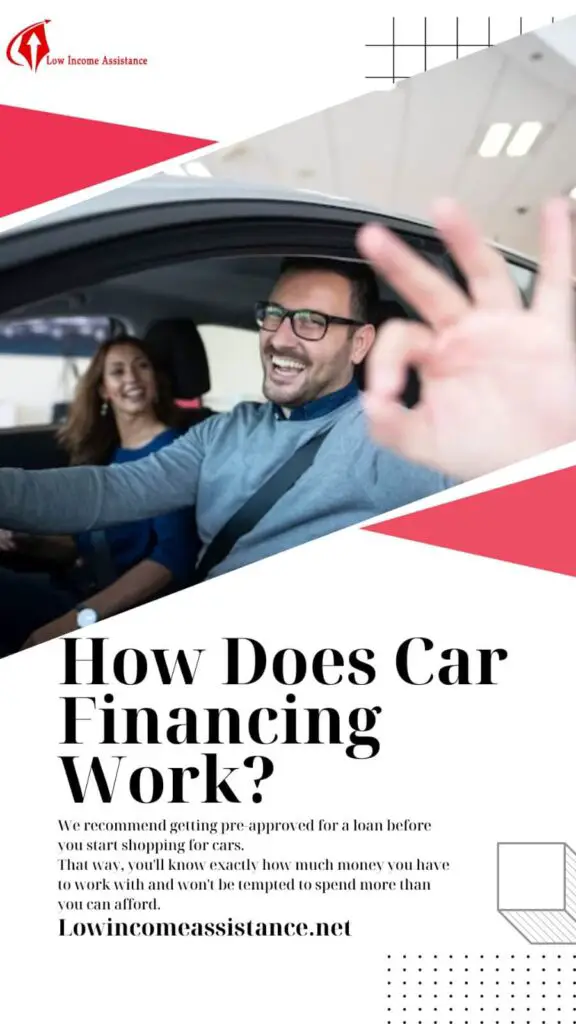Are you in the market for a new car? Maybe you are first time car buyer, or maybe you’re just looking for some advice on what to look out for. In either case, you’re in the right place!
This post is meant to give you a little guidance when purchasing your very first set of wheels. We’ll talk about different types of cars, financing options, and what to look for when test-driving. So whether you’re just starting your research or you’re ready to buy your first car, read on!
What Are Some Of The Best Cars For First-Time Buyers?
The Honda Civic is a great choice for first-time buyers.
It’s affordable, efficient, and reliable—everything you could want in a car. Plus, it comes in a variety of different styles to suit your needs and preferences. If you’re looking for a sedan, the Civic has you covered.
But if you’d prefer something with a little more personality, check out the Civic Si or Type R models. You can’t go wrong with the Civic.
Another great option is the Toyota Corolla.
Like the Civic, it’s affordable and reliable. But what sets the Corolla apart is its incredible safety record. If peace of mind is important to you, the Corolla should definitely be at the top of your list.
Plus, it comes with a host of standard features that make it a joy to drive—including automatic climate control and hands-free Bluetooth connectivity.
If you’re looking for an economical car that’s also fun to drive, take a look at the Mazda3.
It offers sporty handling and impressive fuel economy—all without breaking the bank. And if you opt for the hatchback model, you’ll have plenty of space for all your gear.
Whether you’re headed to the mountains for a weekend getaway or just running errands around town, the Mazda3 will get you where you need to go in style.
You can get more information on Best cars for first time car buyers here.
What Are The Most Important Things To Consider When Buying Your First Car?
Here are 5 of the most important factors to keep in mind when buying your first car.
-
Your Budget
This is probably the most important factor to consider when buying a car. You need to be realistic about what you can afford, both in terms of the monthly payment and the overall cost of ownership.
Once you’ve established your budget, you can start looking at cars that fall within your price range. You May Be Interested to read also First Time Car Buyer Loans With No Cosigner!
-
Your Needs
Are you looking for a car that’s big enough to fit your whole family? Do you need something that’s fuel-efficient? Do you want all the bells and whistles?
Take some time to think about what you need from your car before you start shopping around. That way, you can narrow down your options and find the perfect fit.
-
Your Driving Habits
Do you commute long distances for work? Do you live in a city where street parking is the only option?
How often do you go on road trips? Consider your driving habits when choosing a car so that you can pick something that’s well-suited to the way you use it.
-
Your Safety
This is especially important if you’re buying a used car. Make sure to get a vehicle history report and have a qualified mechanic inspect the car before making a purchase.
It’s also a good idea to research safety ratings and look for features like airbags and antilock brakes.
-
Your Insurance Rates
Before buying a car, get quotes from different insurance companies to see how much your rates will be. Insurance rates can vary widely depending on the make and model of the car, so it’s important to factor this into your decision.
You don’t want to end up with a car that’s too expensive to insure! You can check here for best insurance coverages and cost.
Are There Any Common Mistakes That First-Time Buyers Make When Purchasing A Car?
Buying a car is a big purchase – probably one of the biggest you’ll make in your lifetime (after buying a house, if you’re lucky enough to do that).
So it’s natural to feel a little bit anxious and overwhelmed when you’re starting the car-buying process.
To help put your mind at ease, we’ve compiled a list of 5 common mistakes first-time car buyers make – and how to avoid them.
-
Not Doing Your Research Ahead Of Time
When you walk into a dealership without knowing anything about the car you want to buy, you’re at a major disadvantage.
The salesperson will sense your insecurity and try to take advantage of you by selling you a car that’s not right for you or charging you more than they should.
Do your homework before you step foot on the lot by reading reviews, comparing prices, and narrowing down your options to 2 or 3 models.
That way, you’ll be able to confidently negotiate with the salesperson when it comes time to talk numbers.
How To Get Help With Car Payments Today!
-
Not Being Aware Of Your Credit Score
Your credit score is one of the most important factors in getting approved for a loan – and getting a good interest rate.
If you don’t know what your credit score is, now is the time to find out. Once you know where you stand, you can start working on improving your score if necessary.
The higher your credit score, the lower the interest rate you’ll qualify for – which can save you thousands of dollars over the life of the loan.
-
Not Having A Budget In Mind
One of the biggest mistakes first-time car buyers make is not knowing how much they can afford to spend before they start shopping around.
As a general rule, your monthly car payment shouldn’t be more than 20% of your take-home pay. So if you bring home $3,000 per month after taxes, your monthly car payment shouldn’t be more than $600.
Once you have a budget in mind, stick to it! It’s easy to get caught up in the excitement of buying a new car and spend more than you intended.
-
Focusing Too Much On The Monthly Payment
A lot of people get so focused on negotiating a low monthly payment that they forget about the other costs associated with owning a car – like insurance, gas, and maintenance.
Before you sign on the dotted line, make sure you have a realistic idea of all the costs involved in owning the car so there are no surprises down the road.
5 .Not Taking Advantage Of Discounts And Incentives
If you’re paying cash for your new car, congratulations -you’re in an excellent position to negotiate! If not, there are still plenty of discounts and incentives available that can save you money – like dealer incentives, manufacturer rebates, and trade-in allowances.
Be sure to ask about any available discounts or incentives before finalizing your purchase so you can get the best deal possible.
How Does Car Financing Work?
When you finance a car, you’re essentially taking out a loan to cover the cost of the vehicle. The loan is then paid back over time, with interest.
The terms of the loan will vary depending on the lender, but most auto loans have a term of 36-60 months. That means that you’ll have 3-5 years to pay off the loan, including interest.

The interest rate on your loan will also vary depending on a number of factors, including your credit score. In general, the higher your credit score, the lower your interest rate will be.
That’s because lenders see borrowers with high credit scores as being less of a risk. If you have good or excellent credit, you should be able to get a competitive interest rate on your car loan.
When it comes to actually applying for a loan, you can do so through a bank, credit union, or online lender. We recommend getting pre-approved for a loan before you start shopping for cars.
That way, you’ll know exactly how much money you have to work with and won’t be tempted to spend more than you can afford. Here are some best and easy options for can financing for first-time buyers.
What Are The Requirements For Car Financing?
The requirements for car financing vary from lender to lender, but there are a few general requirements that are typically needed in order to qualify for a loan.
First and foremost, you need to have a steady source of income in order to qualify for a loan. Lenders want to see that you have the ability to make monthly payments on time. They may also require proof of income in the form of tax returns or pay stubs.
Lenders will also look at your credit score when considering you for a loan. Your credit score is a number that represents your creditworthiness—the higher your score, the more likely you are to repay your debt on time.
If you don’t have much credit history or your credit score is on the lower end, don’t worry—there are still options available to you.
Some lenders specialize in working with first-time car buyers with little or no credit history.
Interest Rates For First-Time Car Buyers
If you’re a first-time car buyer, you may be wondering what the current interest rates are and how they might affect your purchase.
Here, we’ll give you an overview of interest rates for first-time car buyers, so you can make the best decision for your needs.
Current Interest Rates
Interest rates on auto loans are currently at historic lows, with the average rate for a new car loan sitting at around 4%.
That means now is a great time to finance a new car purchase. However, it’s important to keep in mind that interest rates will vary depending on your credit score. If you have excellent credit, you may be able to qualify for an even lower rate.
How Do Interest Rates Affect Your Payment?
The lower the interest rate on your loan, the less you’ll end up paying in interest over the life of the loan.
For example, let’s say you’re financing a $20,000 car at 4% interest over five years.
Your monthly payment would be $369, and you would pay a total of $1,461 in interest over the life of the loan. Now let’s say you’re able to get a loan with an interest rate of 3%.
Your monthly payment would drop to $361, and you would pay a total of $1,381 in interest – that’s a savings of $80 over the life of the loan.
You can read more about interest rates for first time car buyers here.
What Are First Time Car Buyer Programs?
First time car buyer programs are designed to help people who are buying a car for the very first time get financing. These programs usually offer lower interest rates and lower down payments than traditional loans. That means you can save money on your monthly payments and in the long run.
How Do You Qualify for a First Time Car Buyer Program?
To qualify for a first time car buyer program, you’ll usually need to meet certain income requirements and have a cosigner with good credit. Some lenders may also require that you have a steady job or are enrolled in school full-time.
What Are The Benefits Of First Time Car Buyer Programs?
There are several benefits of first time car buyer programs. For one, they can help you save money on your monthly payments. Additionally, they can help you build credit so that you can get better rates in the future.
And lastly, they can help you get into a new car sooner than if you were to wait and save up for a traditional loan.
First Time Car Buyer Programs For College Students
For many college students, buying a car is the first major purchase they make on their own. It’s a big decision, and one that comes with a lot of responsibility. If you’re a college student who is thinking about buying a car, you’re in luck.
There are several first time car buyer programs available for students that can help you get into the driver’s seat without breaking the bank.
-
Capital One Auto Finance
Capital One offers financing for new and used cars, and there are no prepayment penalties or hidden fees.
You can get pre-qualified online in minutes, and you’ll know exactly how much you can afford before you start shopping for your new ride.
Capital One also has a mobile app that makes it easy to keep track of your car payment and account balance on the go.
-
Chase Auto Direct
Chase offers competitive rates and terms for qualified borrowers, and there is no annual fee or prepayment penalty.
You can get pre-qualified online in minutes, and you’ll have access to a dedicated team of auto financing experts who can answer all of your questions along the way.
Plus, Chase has a network of more than 16,000 dealerships nationwide that participate in their program, so finding the right car for you will be a breeze.
-
Wells Fargo Auto Loans
Wells Fargo offers financing for both new and used cars, and they have a wide variety of loan terms to choose from.
You can get pre-qualified online in just minutes, and you’ll have access to a dedicated team of auto financing experts who can help you every step of the way.
Wells Fargo also offers an array of tools and resources to help you make smart decisions about your car purchase, so you can be sure you’re getting the best deal possible.
How Much Money Can You Get From A First Time Car Buyer Grant?
The amount of money you can get from a first time car buyer grant will vary depending on the program and the state in which you live. However, most programs will offer between $500 and $5,000.
Some programs may even offer more money if you meet certain criteria, such as being a low-income earner or belonging to a particular group (e.g., veterans, single parents, etc.).
To find out how much money you could potentially get from a first time car buyer grant, your best bet is to contact your state’s Department of Motor Vehicles (DMV).
They should be able to give you more information on the programs available in your area and how to apply for them.
For more information on first time car buyer grants, click here.
How Can Someone Re-Build Their Credit Rating?
A bad credit score can feel like a weight around your neck. It can make it hard to get approved for loans, credit cards, and even rental apartments. If your score is low, don’t despair—there are steps you can take to improve your credit rating.
-
Pay Your Bills On Time
This one seems like a no-brainer, but it’s important to pay all of your bills on time, every time. Set up automatic payments if that’s what it takes to make sure your bills are always paid on time.
Late payments can stay on your credit report for up to seven years, so it’s important to be diligent about timely payments.
-
Keep Balances Low On Credit Cards And Other “Revolving Credit”
Credit card companies typically report your balance to the credit bureaus every month. If you have a high balance relative to your credit limit, that will hurt your score. Try to keep balances below 30% of your credit limit—and ideally below 10%.
-
Have Credit Cards But Use Them Sparingly
If you have credit cards but don’t use them, that can actually hurt your score. The key is to use them sparingly and always pay off the balance in full each month.
One way to do this is to set up automatic payments for the minimum amount due each month so you’re never late with a payment. Then, make a point of paying off the entire balance each month when the bill comes in.
This will help show that you’re a responsible borrower without incurring any interest charges.
Are There Any Special Financing Options Available For First-Time Car Buyers With Bad Credit?
-
Credit Unions
Credit unions are a great option for anyone looking to finance a car, regardless of credit history.
Credit unions typically have lower interest rates than banks and other lenders, so it’s easier to qualify for a loan and get a lower monthly payment.
In addition, credit unions often offer special programs for first-time car buyers with bad credit. These programs may include lower down payments, longer loan terms, and higher loan limits.
FInancing Help For First Time Car Buyer
-
Buy Here, Pay Here Dealerships
Buy here, pay here dealerships are another option for first-time car buyers with bad credit. These dealerships specialize in selling and financing cars for people with bad credit.
They typically don’t require a down payment and they’re willing to work with you to create a monthly payment plan that fits your budget.
The downside of buy here, pay here dealerships is that they usually charge higher interest rates than other lenders.
In addition, the cars they sell are often more expensive than what you would find at a traditional dealership. Specially you can check out some first time car buyer dealerships also that will you a lot.
-
Auto Loans From Online Lenders
There are also several online lenders that offer auto loans to people with bad credit. These loans typically have higher interest rates than loans from banks or credit unions, but they may be easier to qualify for.
In addition, online lenders often have shorter loan terms than traditional lenders, which can help you save on interest over the life of the loan.
Tips For Negotiating With First-Time Car Buyer Dealerships
You did it! You saved up, did your research and found the perfect car for you. Now it’s time to haggle and get the best price possible.
Here are some tips on how to negotiate with a first time car buyer dealership so you can drive away in your new car without breaking the bank.
-
Do Your Research Ahead Of Time
Before you even step foot in a dealership, it’s important to do your homework. Know what kind of car you want and what kind of price range you’re looking at.
Once you have a good idea of what you want, you’ll be in a better position to negotiate. The dealer may try to upsell you on a more expensive model or add on extras that you don’t need, but if you know what you want going into the negotiation, it will be easier to stay firm on your price.
-
Don’t Be Afraid To Walk Away
If the dealer isn’t willing to meet your price, don’t be afraid to walk away. There are plenty of other dealerships out there, and chances are, one of them will be more than happy to work with you.
Remember, the dealership is trying to make a sale, so if they see that you’re not budging, they may be more inclined to meet your price.
-
Be Prepared To Negotiate On Extras
When it comes to negotiating the price of the car, remember that there’s more than just the sticker price to consider.
Things like extended warranties, gap insurance, and service contracts can add up quickly, so be prepared to negotiate on those as well.
In some cases, it may be worth it to pay a little extra for peace of mind, but in other cases, it might be something that you can forgo altogether.
-
Get Everything In Writing
Once you’ve reached an agreement with the dealership, make sure that everything is put in writing before you sign on the dotted line.
This includes the purchase price of the car as well as any extras that were included in the deal. This will protect you down the road in case there’s any confusion about what was agreed upon.
-
Have Realistic Expectations
Keep in mind that dealerships are businesses and their ultimate goal is to make money. With that being said, don’t expect to get an amazing deal just because it’s your first time buying a car—the dealership is going to try to get as much money out of you as possible.
However, if you do your research and stay firm on your prices, you should be able to get a good deal on your first car purchase!
The Pros And Cons Of Buying A Used Car
Let’s start with used cars. The biggest advantage of buying a used car is that you can get more bang for your buck.
Used cars are typically much cheaper than new cars, so if you’re working with a limited budget, a used car might be the way to go.
Another advantage of buying a used car is that it may come with some features that you wouldn’t be able to afford if you bought a new car.
For example, luxury features like heated leather seats or navigation systems are often only available on higher-end models, but you might be able to find them on a used car that’s within your budget. Of course, there are also some disadvantages to buying a used car.
One is that you might not be the first owner, which means that the car might not be in as good of condition as a new car would be.
Additionally, if the previous owner didn’t keep up with regular maintenance, you could end up having to pay for repairs sooner than you would if you bought a new car.
Finally, it can be harder to get financing for a used car than it is for a new one.
The Pros And Cons Of Buying A New Car
Now let’s talk about buying a new car. The biggest advantage of buying new is that you’re the first owner, so you know exactly what condition the car is in and how it was maintained.
Additionally, new cars usually come with warranties that cover repairs for at least the first few years of ownership, so if something does go wrong, you won’t have to pay out of pocket to fix it.
Another advantage of buying new is that it’s easier to get financing; since new cars hold their value better than used ones do, lenders are often more willing to give loans for them. However, there are also some disadvantages to buying a new car.
The biggest one is the price tag; new cars can be significantly more expensive than used ones (though there are often deals and incentives available to help offset the cost).
Additionally, since new cars haven’t been driven before, they can sometimes have issues that don’t show up until after you’ve driven them off the lot.
This is why it’s important to get any new car inspected by a mechanic before finalizing the purchase.














